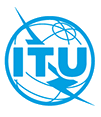Smart Village Pakistan
| Project No | 2PAK22002 | |
| Title | Smart Village Pakistan | |
| Description |
Pakistan is an emerging digital economy, with digital technologies beginning to transform the way people live and work and the Government taking a leap towards the agenda of digital development by launching its ‘Digital Pakistan’ policy. Moreover, and notably, following the Covid-19 outbreak in Pakistan in late February 2020, a major shift to work-from-home models was seen in the business, education, and services sectors due to countrywide lockdown. The State of Pakistan’s Economy report 2019-2020 by the State Bank of Pakistan detailed that in the backdrop of the lockdown imposed in March, the shift towards digital platforms has become equally inevitable for government institutions, education, businesses, and households. Subsequently, digital platforms have become the primary channel for accessing public and private services for a growing number of citizens. Where it manifests that government ownership and vision is existent for the digital transformation in the country, the grass root level realities and statistics provide an interesting and mixed picture. Promoting the development of Smart Villages is of critical importance in accelerating the achievements of the UN Sustainable Development Goals (SDGs) in Pakistan. Pakistan aims to bring the benefits of digital transformation to its citizens, adopting a whole of government and smart village approach in accordance with the vision of Digital Pakistan. This project will support the Smart Village project in Pakistan in cooperation with Ministry of Information Technology and Telecommunication and Universal Service Fund (USF) (Pakistan), and Huawei. With this objective, the Smart Villages Pakistan project aims to digitally transform remote and rural communities by connecting them and empowering the citizens living in the rural areas with better access to a range of digital services that can meaningfully improve their wellbeing and livelihoods in line with the Digital Pakistan policy. A wide range of services can be provided through integrated digital platform(s) that may simultaneously support various functions thereby allowing for customization, cost-reduction, and scalability. The project aims to increase remote areas' access to a range of digital services in the domains of health, education and commerce |
|
| Area of Action |
Digital Inclusion ICT Applications |
|
| Status | Ongoing | |
| Time Frame | From 1/12/2022 To 30/9/2025 | |
| Beneficiary Countries | Pakistan (Islamic Republic of) | |
| Implementing Agency | International Telecommunication Union (ITU) | |
| Cooperation Agency | Ministry of Information Technology and Telecommunication and Universal Service Fund (USF), Pakistan | |
| Financial Scale (CHF) | 100'000 - 500'000 | |
| Achievements |
- Smart Village Development: The project aims to assist 3-4 villages in developing Smart Village programs, directly impacting approximately 2000 persons with improved connectivity and digital services. - Capacity Building and Awareness: Conducting evidence-based studies, raising awareness, and building skills among at least 500 participants, focusing on inclusivity with targets for women and youth participation. - Digital Service Delivery: Implementation of at least two new digital services in each beneficiary village, enhancing the range of accessible services in health, education, commerce, government services, and livelihoods. The project follows a three-step implementation process: 1. Program Development and Needs Assessment: Analyzing current states and future requirements, establishing governance frameworks, and engaging stakeholders. 2. Program Roll-Out: Developing projects, setting up governance, engaging stakeholders, and launching pilot services. 3. Village Level Scale-Out: Expanding the program based on experiences from the initial phases, aiming for broader adoption and sustainability.
|
|
|
Request more information about this project |
||


